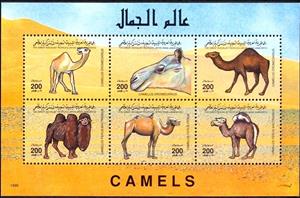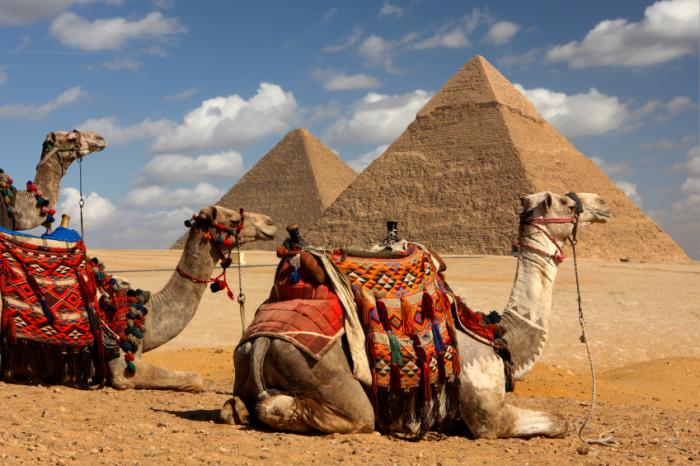Mini Sheet: Camels and Dromedary - MiNo. 2367-72 (Libya 1996)
Camels and Dromedary - MiNo. 2367-72 (Libya 1996)
15 November (Libya ) within release Fauna of Libya goes into circulation Mini Sheet Camels and Dromedary - MiNo. 2367-72 face value 6*200 Libyan dirham
| Mini Sheet Camels and Dromedary - MiNo. 2367-72 in catalogues | |
|---|---|
| Michel: | Mi:LY 2367-2372KB |
Mini Sheet is square format.
Also in the issue Fauna of Libya:
- Mini Sheet - Camels and Dromedary - MiNo. 2367-72 face value 6*200;
- Stamp - Camelus ferus ferus face value 200;
- Stamp - Camelus ferus bactrianus face value 200;
- Stamp - Camelus dromedarius face value 200;
- Stamp - Camelus dromedarius face value 200;
- Stamp - Camelus dromedarius face value 200;
- Stamp - Camelus ferus bactrianus face value 200;
Mini Sheet Camels and Dromedary - MiNo. 2367-72 it reflects the thematic directions:
A camel (from Latin: camelus and Greek: κάμηλος (kamēlos) from Ancient Semitic: gāmāl) is an even-toed ungulate in the genus Camelus that bears distinctive fatty deposits known as "humps" on its back. Camels have long been domesticated and, as livestock, they provide food (camel milk and meat) and textiles (fiber and felt from camel hair). Camels are working animals especially suited to their desert habitat and are a vital means of transport for passengers and cargo. There are three surviving species of camel. The one-humped dromedary makes up 94% of the world's camel population, and the two-humped Bactrian camel makes up 6%. The wild Bactrian camel is a separate species and is now critically endangered.

